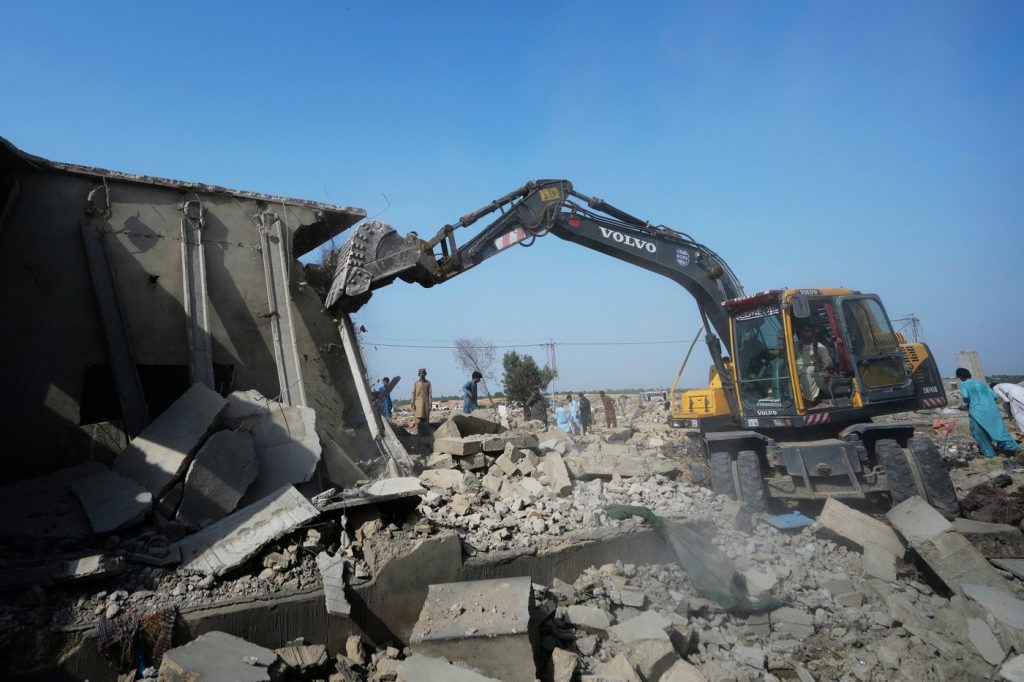ISLAMABAD (AP) — Pakistan and Afghanistan have announced a ceasefire following several days of severe clashes that resulted in multiple fatalities on both sides of the border. The ceasefire, lasting 48 hours, was initiated at Afghanistan's request, according to Pakistan's Foreign Ministry. Despite this pause in hostilities, key border crossings remain closed.
The violence escalated following allegations from Pakistan that Afghanistan is providing refuge to armed groups, a claim that has been denied by the Taliban rulers in Afghanistan. This conflict marks a significant rise in hostilities, as Pakistan has been facing a surge in militant attacks since the Taliban's seizure of power in Afghanistan in 2021.
As the fighting intensified, reports emerged of Pakistani forces killing dozens of Afghan security personnel and militants during overnight confrontations. The Taliban's chief spokesman, Zabihullah Mujahid, countered that several Pakistani soldiers were also killed in return fire, signifying the reciprocal violence between the two nations. The nature of the clashes involved the use of both light and heavy weaponry, with Mujahid asserting that the conflict was initiated by Pakistan.
Humanitarian concerns have also arisen from the ongoing conflict. Emergency NGO, which operates a surgical center in Kabul, reported receiving five dead and 40 wounded individuals, suffering from various injuries including shrapnel wounds, blunt force trauma, and burns. The organization indicated that ten of the wounded were in critical condition. The exact cause of explosions leading to these casualties remains unclear, though an oil tanker explosion in Kabul was confirmed by the Taliban, alongside military operations targeting militant hideouts by Pakistan's army.
Looming fears of further escalation prompted calls for an end to the violence from regional powers such as Saudi Arabia and Qatar. The continued instability in the region raises alarms, particularly due to the presence of extremist groups like the Islamic State and al-Qaida, who are seeking to regain a foothold amidst this chaos.
Residents in the Pakistani border town of Chaman have reported falling mortars near their homes. Many have decided to evacuate, expressing the desire for a permanent resolution to the conflict. The long-standing history of violence in Pakistan's border regions stretches back to the Soviet-Afghan War of 1979, when the country became a frontline state in a U.S.-backed effort against Soviet forces. It's noted that after the September 11 attacks, Pakistan's tribal areas descended into chaos with the operations of the Afghan Taliban, al-Qaida, and various other groups conducting attacks against NATO and Pakistani security forces.
In the wake of these developments, the international community is closely monitoring the situation, understanding that the ability of Pakistan and Afghanistan to manage their border tensions will be vital for regional stability. As the ceasefire takes effect, there is cautious optimism, yet lingering concerns about the potential for renewed hostilities.












